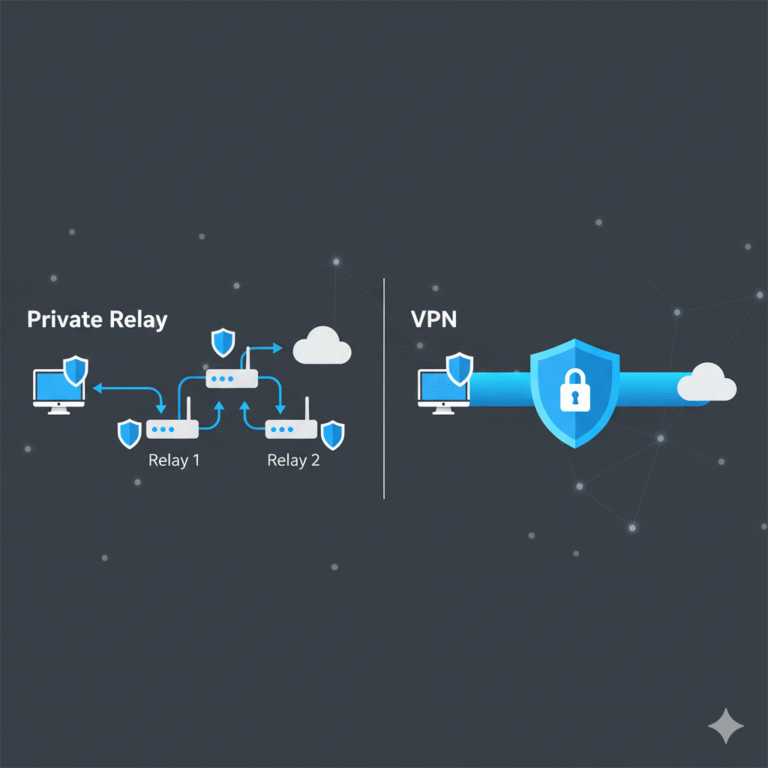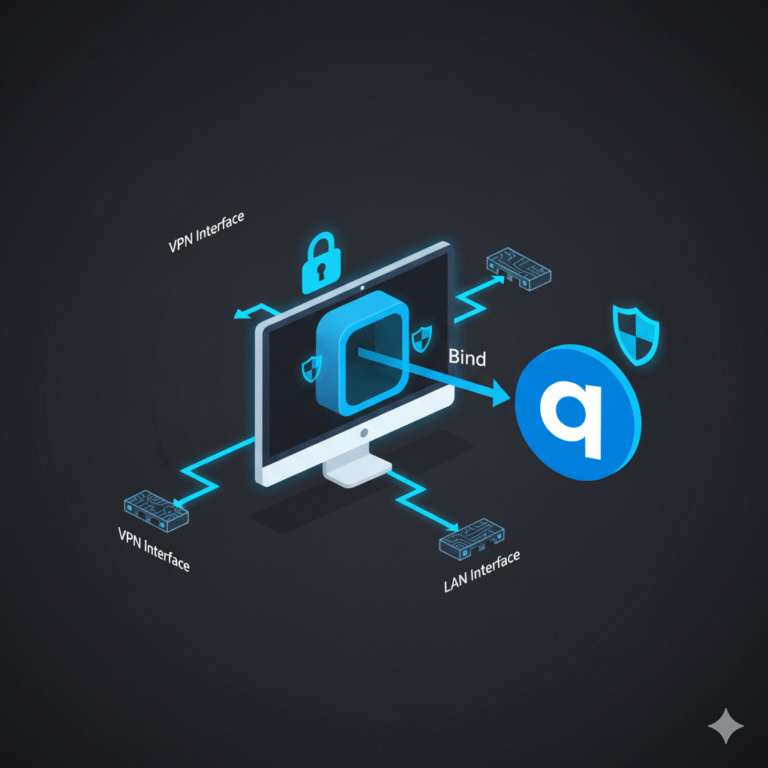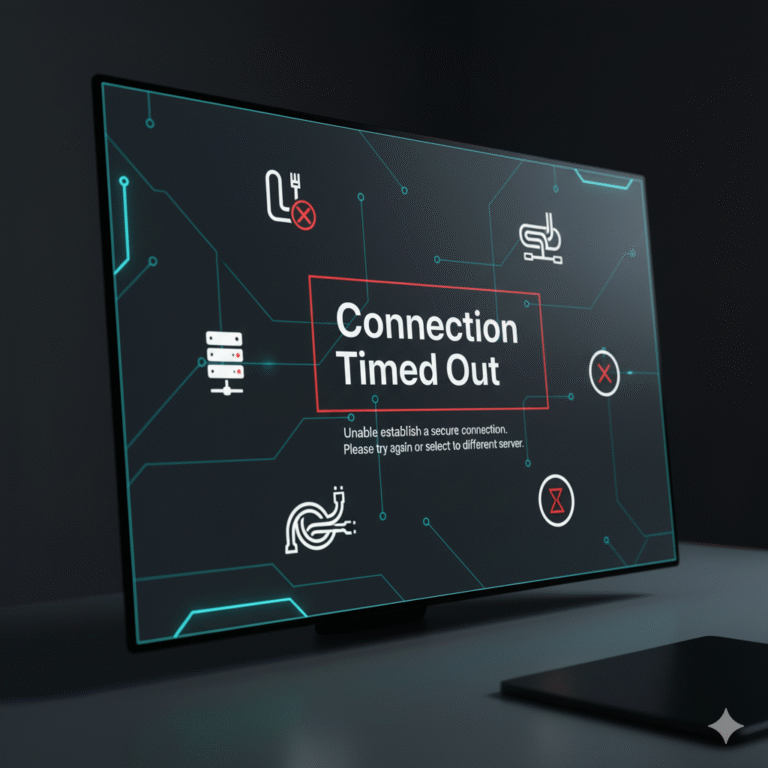What does it mean to block Roku from your privacy?
When people ask, how does a vpn block roku from your privacy, they usually want to understand how VPNs restrict Roku from accessing certain personal data—especially when using apps or streaming content.
A VPN (Virtual Private Network) works by:
- Encrypting your traffic: This prevents Roku apps from reading or tracking what you’re watching.
- Hiding your IP address: Roku can no longer determine your real location, which is often used to personalize content or ads.
- Preventing DNS leaks: Ensures your real network provider doesn’t expose your browsing behavior to Roku services.
These protections limit how much Roku (and any associated apps) can “see” about you. Your data is routed through a secure VPN tunnel instead of going directly through your ISP, effectively shielding your identity.
Why does Roku collect personal data?
Roku, like many streaming devices, gathers usage data to:
- Improve recommendations based on watch history
- Deliver personalized ads (via its ad platform)
- Monitor app usage, geographic location, and streaming behavior
- Track device activity and connect it to advertising identifiers
This level of tracking can be invasive, especially for privacy-focused users. That’s why many are asking: how does a vpn block roku from your privacy—because VPNs offer a clear defense.
If you want a broader understanding of the difference between VPNs and other privacy tools, read AirVPN vs NordVPN: Which VPN Offers Better Security & Speed?
How does a VPN prevent Roku from accessing your IP?
The IP address is the biggest clue Roku has about your identity and location. Here’s how a VPN breaks that link:
- Replaces your IP: VPNs assign you a new IP address from a server in a different country or city.
- Prevents IP leaks: Tools like NordVPN or ExpressVPN use advanced kill switches and leak protection.
- Stops Roku from identifying your network: Since all data comes from the VPN server, Roku can’t tie activity to your real IP.
Want to learn how advanced VPN tunneling works? Check out What is a VPN Concentrator: Secure Multi-Tunnel VPN Device
Can a VPN block Roku from tracking your viewing habits?
Yes—but with some limitations.
A VPN encrypts data between your device and the internet. If Roku tries to:
- Track viewing activity — it won’t get readable data if the stream goes through a VPN.
- Track app usage — it can’t see app-specific metadata if you’ve blocked that using router-level VPNs.
- Track location — VPNs effectively spoof where you appear to be, stopping geo-location tracking.
However, if you’re logged into Roku or third-party apps like Netflix with an account, some data tracking may still occur on the app side—not the network side.
For apps like Netflix, you might prefer VPNs specialized for streaming. We break down the best in Top 5 VPNs for Netflix – A comparison list of VPNs that unblock Netflix in 2025
How do you set up a VPN to protect privacy on Roku?
Because Roku devices don’t support VPN apps directly, you need a workaround:
Option 1: Use a VPN-enabled router
- Buy a router that supports VPN (or flash yours with DD-WRT firmware)
- Install your VPN provider on the router (e.g., NordVPN, ExpressVPN)
- Connect your Roku to that router
- All traffic gets encrypted and anonymized automatically
Option 2: Create a VPN hotspot from your PC/Mac
- Set up your VPN on a desktop
- Enable Wi-Fi hotspot sharing
- Connect Roku to this new “VPN-protected” Wi-Fi
Option 3: Use Smart DNS
- Some VPNs offer Smart DNS services that reroute Roku traffic to unlock content while hiding your IP
- Easier to set up but provides less security
Want a step-by-step for torrenting apps like qBittorrent? Read How to Bind qBittorrent to VPN for Secure Torrenting
Will using a VPN impact Roku performance?
VPNs can affect speed, but not always in a negative way:
Pros:
- May reduce ISP throttling
- Access smoother international content servers
- Prevent buffering from regional congestion
Cons:
- May add latency if server is far away
- Quality depends on VPN provider’s server speed and location
For example, ExpressVPN Review – Tested in 2025 confirms that the service delivers reliable speeds for 4K Roku streaming.
If ping and latency are concerns, read Does Using a VPN Help with Ping? Find Out Now
Is using a VPN with Roku even legal?
Yes—in most countries, using a VPN is perfectly legal. However:
- Streaming policy violations: Some streaming services may block accounts if they detect VPN use.
- Geo-restricted content: Bypassing geographic blocks may violate terms of service—but it’s not a crime.
In heavily censored countries, VPN use might be restricted. Be aware of local laws. For example, here’s Is VPN Legal in China – What You Must Know (2025)
How does a VPN block Roku from your privacy when you’re using third-party apps?
Many Roku users install apps like Netflix, Hulu, or Disney+. These apps gather their own tracking data—sometimes bypassing Roku’s ecosystem.
A VPN helps by:
- Encrypting app traffic so it doesn’t reveal metadata
- Spoofing app location to bypass geo-blocks
- Preventing ISP from logging your app behavior
This works best when you configure VPN at the router level, which ensures all devices and apps are covered.
To go deeper into VPN types and privacy tech, explore Is DNSCrypt an Alternative to VPN? Explained Simply
Final Thoughts: Should you use a VPN with Roku for privacy?
Absolutely. If your goal is to prevent tracking, location-based restrictions, or ad targeting, a VPN is your best tool. As we’ve seen, how does a vpn block roku from your privacy comes down to:
- Hiding your IP and location
- Encrypting all Roku-related traffic
- Preventing DNS and activity tracking
Just make sure to use a router or hotspot setup, as Roku doesn’t support VPN apps natively.
You can also explore Can a VPN Bypass an IP Ban? Find Out Now if you’re trying to evade specific restrictions.



